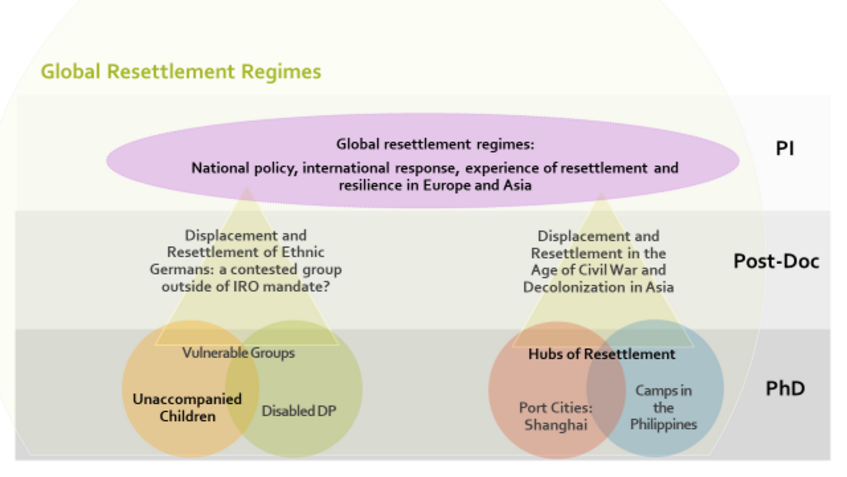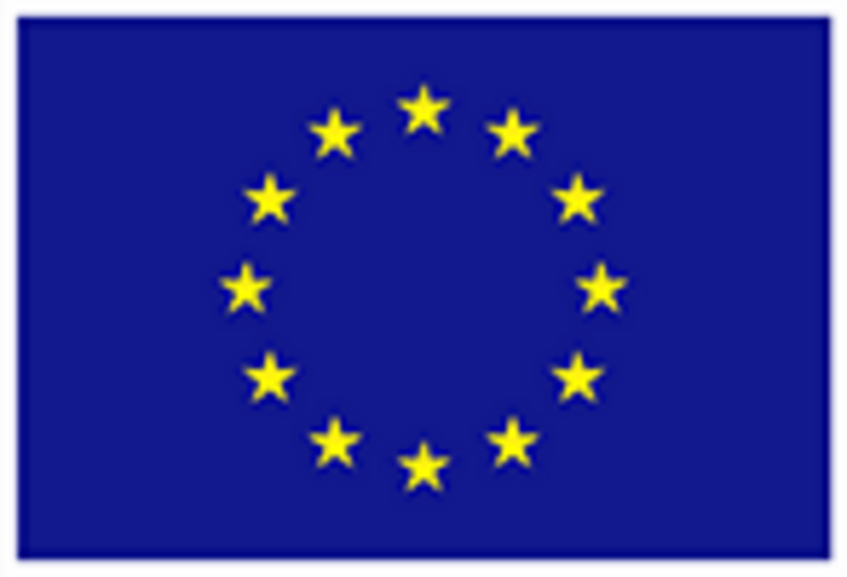
The 20th century saw unprecedented violence, not only on the battlefields in Europe and Asia, but also against civilians who suffered large-scale deportation and forced migration in both the European and the Asian theatres of war. In Europe, slave labour workers from countries occupied by Nazi Germany, Holocaust survivors and concentration camp inmates were seeking a way back into normal life in a war-torn continent; many of them opted for overseas emigration. In Asia, the situation in China, ravaged by Japanese imperialism and civil war, and India/Pakistan after Independence and Partition in 1947, offered even larger challenges, not to mention returning slave labourers and, as a special group, Japanese settlers. Considering their human scale, these events constituted even more dramatic refugee crises for the international community.
Understanding International Humanitarian Law as one crucial legacy of the 20th century and the aftermath of world war violence in particular, this project argues that the management of the international migration regime was, despite setbacks, in a long durée perspective one of the post-war global success stories. It can potentially offer lessons even today.
This project addresses the global picture of migration management and refugee settlement, exploring the potential of global history with an innovative interface to legal history. Although norms and definitions were often framed on a global scale, the regional outcome and praxeology on the ground often differed sharply across societies. This project will therefore interrogate the challenges of mass migration and resettlement as a global institutional experience and investigate how measures in Europe and Asia (and life chances of migrants) differed?
ERC Project Structure
- PI Project "Granting and negotiating citizenship: ambivalences and flaws of the globalization of refugee resettlement norms"
- Postdoc Global Entanglements Asia: "Displacement and Resettlement in the age of Civil War and Decolonization (China)"
- Postdoc Global entanglements Europe: "Displacement and Resettlement of Ethnic Germans: a contested group outside of IRO mandate?"
- PhD 1: "Resettlement of vulnerable groups: Unaccompanied Children"
- PhD 2: "Resettlement of vulnerable groups: disabled DPs and victims of Forced labour"
- PhD 3: "Hubs of Resettlement: the case of Shanghai"
- PhD 4: "Hubs of Resettlement: the case of the Philippines"
- PhD 5: "Mapping the Spatial and Social-Administrative Networks of Resettlement: The Role of Hubs of Displacement in the Resettlement Process of 'The Last Million'"
This project investigates the problem with the help of case studies, involving early career researchers (2 post-doc, 4 PhD) as well as advanced visiting scholars who will strengthen our team at different phases of research.
- Each case study of this project will first scrutinize the institutional (international, national, and local/regional) aspect of the management of migration.
- Subsequently, every sub-project will enquire into refugees’ lifeworlds and bring the biographical factors and life narratives of the DPs to the forefront.
- In a third step, the ‘learning system’ between experts, politicians, and other actors, as well as public discussions, such as in the media and in DP periodicals will be interrogated
- The case studies will track paths of resettlement and building of new lives in new host societies or old homelands, thereby linking histories of Europe and Asia with Australia and the Americas.
- The PhD-projects will scrutinize the institutional and individual interactions which framed the path of DPs from the sites of forced displacement to the locales of resettlement.


Funded by the European Union (ERC, GLORE, ECGA Nr. 101053242) Views and opinions expressed are however those of the author(s) only and do not necessarily reflect those of the European Union or the ERC. Neither the European Union nor the granting authority can be held responsible for them.
